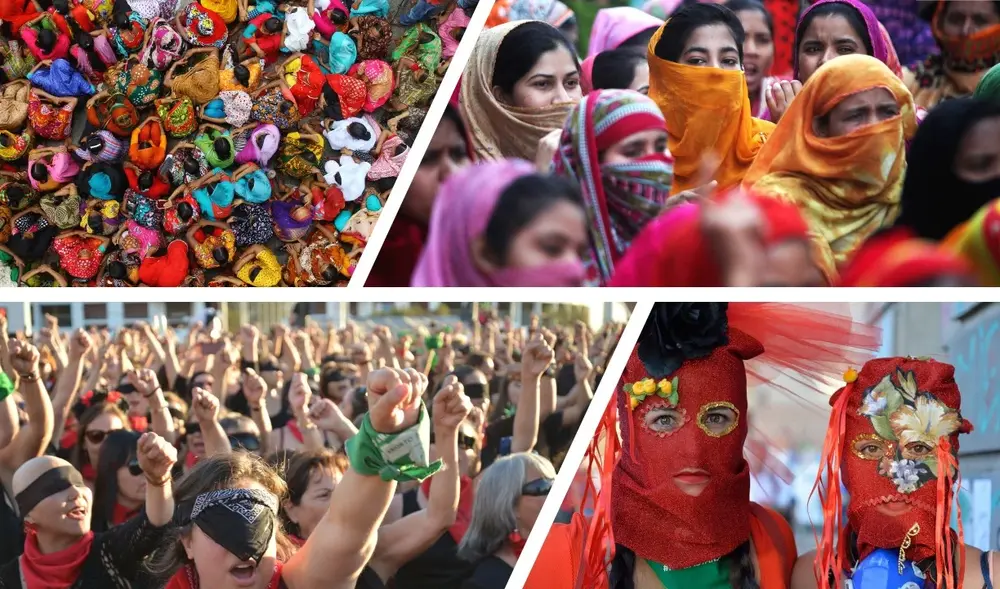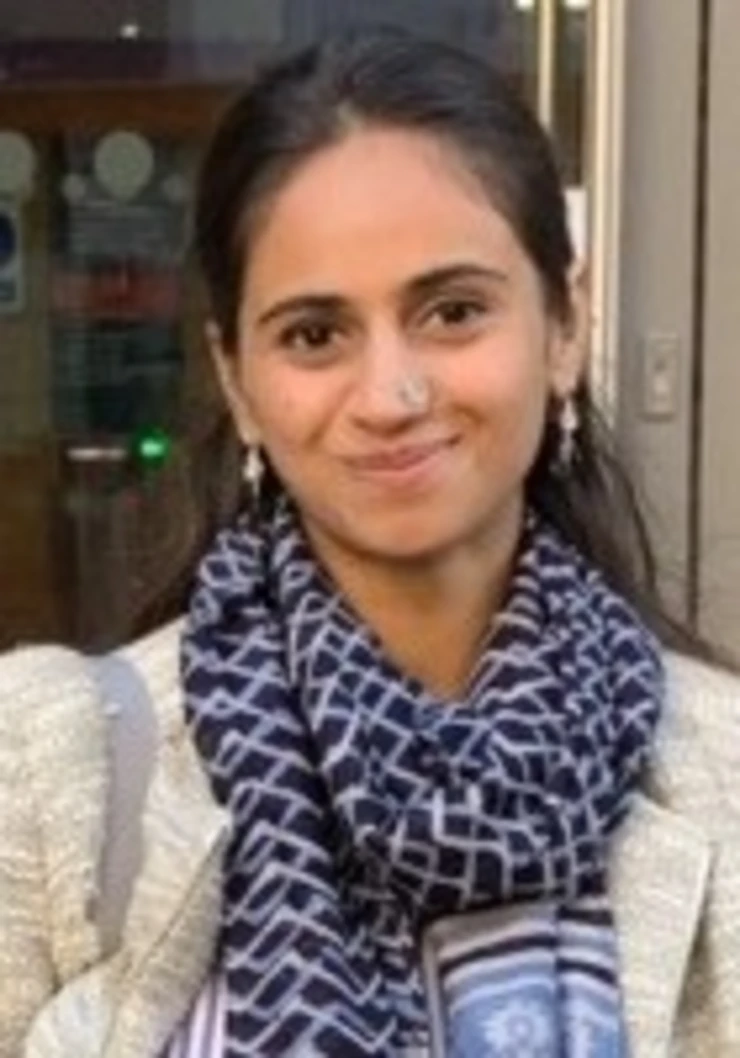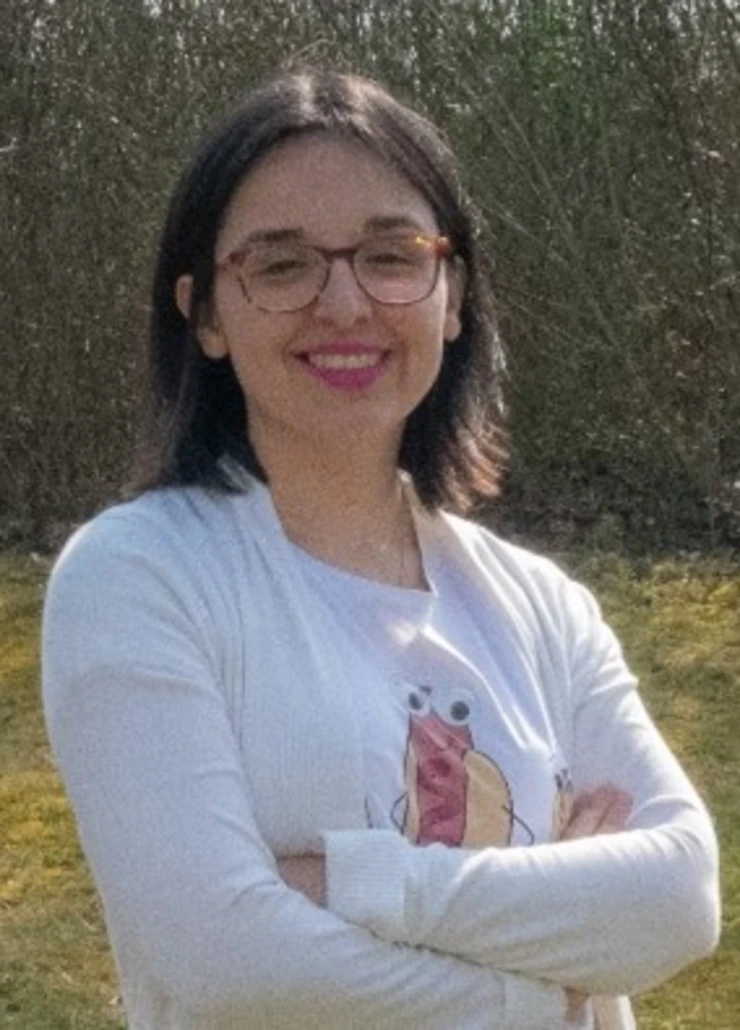Intersectional feminism of the Global South: Lessons from India and Latin America

What happens when two women from distant corners of the Global South sit together to discuss domestic feminist movements? We realise that there is more in common than one would imagine. While the nuances of these homegrown movements highlight the contrast in approaches, the mission is the same: to create a new world order rid of gender inequality. This blog piece brings together perspective from two long-established feminist movements, the Digital Dalit feminist movement and the “Marea Verde” (green tide) from India and Latin America, respectively. While doing so it looks at the intricacies of social action towards gender inequality and stresses the significance of the interaction to transcend this mission to a transnational level.
Gender and socio-economic inequality function in tandem to support a dangerously regressive approach to society and social structures. These overarching inequalities can be pinned down to omnipresent issues of patriarchy and its byproducts - gender roles and a skewed idea of ‘Masculinity’. India’s Gender Inequality Index is 0.488. While this number represents a relatively grey picture, it is further shaded by issues of casteism and the triple burden experienced by women from the Dalit community. Dalit women face the social construct of a patriarchal society compounded with the restrictions of coming from the so-called “lower castes”. This put them right at the bottom in the societal structure wherein they have close to no social mobility. Latinoamerica is no different; the patriarchal structure infamously known as Machismo continues to impact the lives of women. Men dictate gender roles that are strong and difficult to break. There is a popular saying “el Machismo se escribe con M de mamá” (Translation: Machismo is spelled with M for mom). Greater intragenerational experience sharing supports the advancing of the fundamentals of these movements to the youth. Naturally, the legal systems in India and Latinoamerica further legitimise these societal behaviors and norms. For instance, Triple Talaq only became a criminal offense in India in 2019. Divorce and abortion were dicriminalised in Chile in 2009 and 2017, respectively.
Digitalisation of these feminist movements has brought about refreshing, wider participation and generated alternative, inclusive narratives. With the introduction of Web 2.0 and its easy accessibility to individuals in the Global South, these movements established their extensions in digital spaces. Subsequently, it gave way to larger participation and was, therefore, able to increase its audience reach surpassing the roadblocks created by traditional media. Traditional media is notoriously known for its bias towards marginalised communities. The nuanced evolutions of the Dalit feminist movement and Marea Verde give way to the identification and establishment of online political participation, representation, and articulation for marginalised groups. Homegrown and grassroots digital mediums for Dalit and Latino American feminisms are also able to subvert the gatekeeping practices of traditional and mainstream media in terms of voices, content, opinions, and reach. Additionally, digital platforms are being used to share and revive Dalit and Latino American poetry and art which further helps the Dalit and Latino American community reclaim its colossal historic contributions to the socio-cultural foundation of their respective societies. These online forums and websites have thus become platforms for the establishment of alternative history to that which has been claimed as the ultimate truth by dominant groups i.e., the upper castes and men.
This bottom-up approach has aided the continuum of Dalit and Latino American feminist movements from personal spaces to communities to the streets and, ultimately to nationals and transnational levels. A sense of community has been fostered into these movements that pave the way for positive feedback loops. This encourages solidarity with heterogeneity. Women in Latin America started using a green scarf as a symbol of women’s rights, resistance, and equality. It is a symbol of sorority, for one that we recognize ourselves, we are sisters. The mission is to highlight the culmination of inclusivity and diversity. These communities create a place that people can identify with. For instance, hashtags start trending on social media platforms and issues of marginalised minorities are brought to the forefront and discussed, giving issues a voice that is otherwise dismissed in the larger (national and successfully transnational) political discourse — for example, #whyloiter , #dalitwomenfight and #dalithistory in India. Additionally, hashtags also ensure the collective nature of the discourse - for example #NiUnaMenos #ViajoSola #ElPatriarcadoEsUnJuez or #AlertaMachista in Latinoamerica. Individuals writing about similar issues can connect and collate aspects of discourse by being able to follow it and participate by sharing their stories and experiences. Being able to share one’s narrative topped with the positive of a trending hashtag empowers future outlook on participation in digital contention. It can be further argued that social media was able to bring emancipatory politics into the repertoire of intersectional feminism in India and Latino American.
These feminist movements enable a network/community open to everyone (with access to the internet). This interwoven attribute of personal and collective encourages organic and willing participation using the heterogeneity of Dalit and Latino American womxn to the community’s advantage in their struggle for emancipation. This further underscores that the world of Dalit and Latino American feminism have always been welcoming and inclusive of womxn from different strata of society unlike the heterogenous ‘women’ category in mainstream feminist movements often labeled as homogenous. Everyone is granted access to participate in the movement and to contribute to it. This is precisely what the digital movement and therefore online Dalit and Latino American network/community have ensured they organically integrate into practice. Furthermore, the combination of social media and online political participation helps engage netizens in the wider Dalit and Latino American feminist battle for social justice, representation, and socio-economic mobility. To find a community not just with members experiencing similar issues but living at the intersections of these societal norms enables fresh perspectives and helps the community of digital Dalit and Latino American feminism grow in numbers as well as in its approach towards an all-inclusive, just society.
In conclusion, social media has enabled individual and collective activism to create and reach subaltern sprees that have established safe spaces for redefining contentious politics while empowering individuals and groups. These feminist movements span across history in both cases from the time of pre-independence. While the Dalit and Latino American feminist movements may not have found their inlet into traditional media spaces, the inception and rapid growth of the Digital versions of these feminist movements have given rise to a previously partially tapped opportunity to further revive and drive the feminist agenda into national and transnational policy and discourses. The myriad reaction of individuals in the Indian and Latino American society to these open digital spaces goes to underscore the restricted nature of traditional media and platforms in recognizing and encouraging feminist voices and issues from the Global South. The coexistence of individual to community to national and transnational discourses and therefore norms and cultures are best understood whilst looking at them through a political lens. One cannot remove the political nature of caste and gender because the personal is political; the public-private division does not matter in cases when it is a matter of access to basic human rights and living a life of dignity.
To all the women out there:
We see you. We see your compassion, your strength, and your infinite perseverance. We see your selfless hearts, your actions to lift and support not only yourselves but also other women. We see those of you who suffer in silence and those of you who fight the world when others are too scared to speak. You inspire us every day to be better, to support and lift others, and to show true compassion towards each and every life.
The world is forever indebted to your suffering and strength. May all the forces of the universe come together and always protect you and your loved ones.
We urge all of you to remember, there is no effort wasted, no road best-left untraveled, no time lost. The time to begin is now!
Inquilab Zindabad! La revolución será feminista, o no será!
Aditi & Carolina

About the authors
Aditi Wahal is a first-year MPP student at the Willy Brandt School of Public Policy. A passionate development and policy specialist with professional and academic training in Social Work and International Development. She seeks to bridge the gap between public and private sector enterprises to strengthen and support global value chains with an inclusive community-based approach. She has recently graduated with distinction from King's College London, UK with an MSc in Emerging Economies and International Development. Her dissertation was titled, "Performance, Imagery and the role of Social Media in the Anti-CAA Movement: The emerging playful repertoire of contentious politics in India". She has over four years of experience working across cultures in NGOs, International Organisations, and the Government of India. Prior to the MSc at King's, she was working with the Clinton Health Access Initiative in India with the Sexual and Reproductive Health team.

Carolina Trichet is a first-year student at the Brandt School. She holds a M.Sc. in Physics from Stuttgart University, has more than 10 years of experience working in a cutting-edge research environment. She is also a social entrepreneur focused on waste management. She is an active member of the feminist migrant and Flint community of Germany, helping to increase awareness on migrant women rights and gender inequality as well as fighting for Chilean-migrant civic rights.
~ The views represented in this blog post do not necessarily represent those of the Brandt School. ~